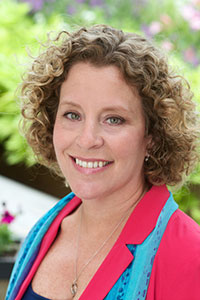Having the Conversation
 Two-thirds of Americans over the age of 65 have yet to discuss long-term
Two-thirds of Americans over the age of 65 have yet to discuss long-term
care or other issues related to aging with their family members. It’s a
sensitive, but necessary, conversation; one that adult children often have trouble initiating, and one that mom and dad would prefer to put off as long as possible. Here at Carillon, we’ve learned that a little planning and forethought go a long way toward a positive outcome for everyone in the family.
Timing is everything, as they say, and that is certainly the case when
initiating a family conversation on long-term care. The best time to have
that conversation is years before the need arises. Waiting until a healthcare
emergency is on the horizon adds stress to an already stressful situation.
For seniors, the best time to sit down with adult children is while you are still young, or at least, young at heart. That is to say, while you can make decisions about yourself, for yourself. Share your wishes with your loved ones, tell them about any concerns you have, and make sure they are aware of any financial plans you’ve made for your retirement. If you have a long-term care policy, share it with your family, and discuss together the scope and limitations of what it will, and won’t, cover when the time comes. Create a living will, or written directions as to your healthcare wishes, and authorize someone in your family to have access to your medical records. To do this, simply sign and date a written request, have it notarized, and give it to your doctor to keep on file.
Most often, the long-term care conversation is initiated by the adult children of an aging parent. If there are many siblings in a particular family, we at Carillon recommend that the siblings first come together and decide who among them would be best at leading the conversation. If there are siblings living in other states, who won’t be there for the family talk, discuss the major points of the conversation beforehand, as well as any expectations related to the outcome. That will ensure everyone is on the same page and working together to give mom and dad the support they need.
Ideally, your family will have the conversation long before the need for assisted living arises. But if not, Carillon is here to help facilitate the discussion. Our care managers often lend the neutral voice that a tender family situation needs. They can quickly assess a senior’s level of personal care needs, point out dangerous or unhealthy habits in the home, and help the family establish a timeline for transition of care.
Realize, too, that this is not so much about planning for the end of life as it is anticipating the best possible later years for yourself or your loved one.
Posted in From the President on June 13, 2016
